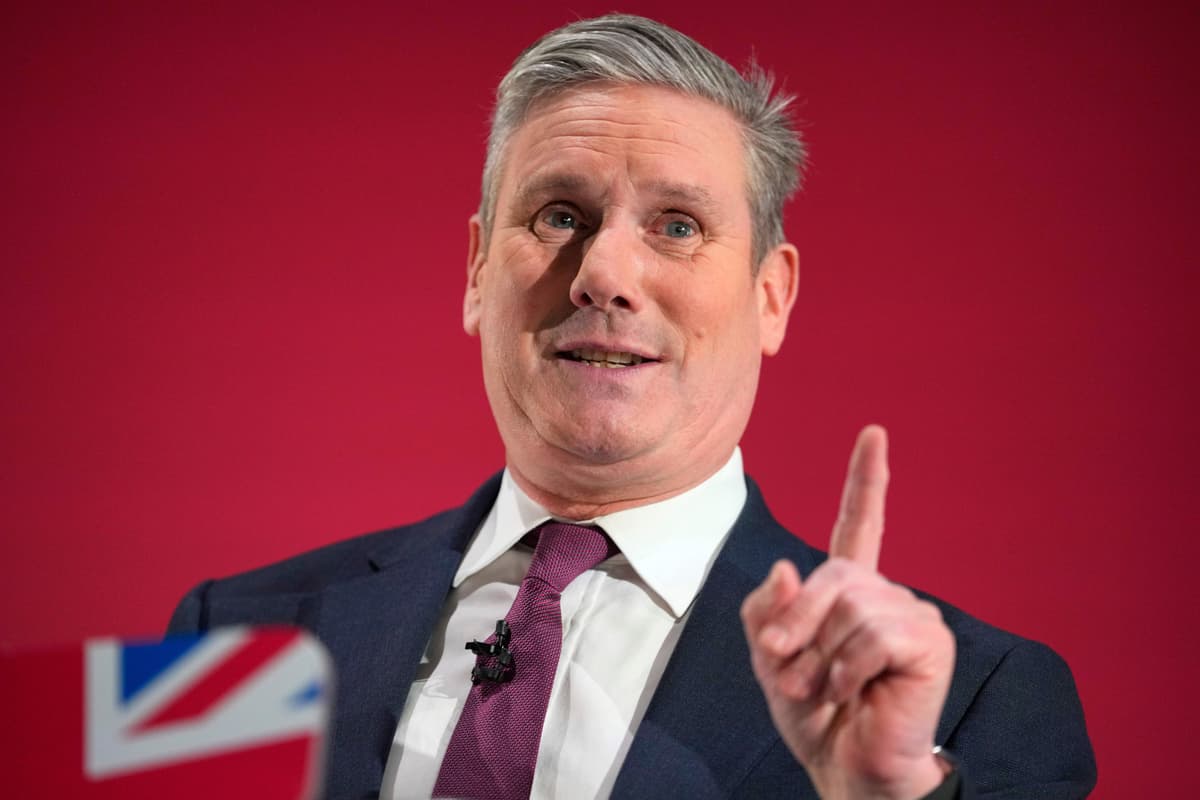Starmer, Who Ran Against Antisemitism, Now Seeks a ‘Balanced’ Position on Israel’s War Against Hamas
The new prime minister tells the premier of the Jewish state that there is a ‘clear and urgent need for a ceasefire.’

Prime Minister Starmer’s Sunday morning conversation with Prime Minister Netenyahu suggests that London and Jerusalem could soon find themselves at loggerheads over the war at Gaza.
Mr. Starmer spoke to the Palestinian Authority’s president, Mahmoud Abbas, and Mr. Netanyahu, on Sunday morning, with an emphasis on the pursuit of a ceasefire and 10 Downing Street’s support for a “two-state solution.”
In a landslide win last week, the U.K.’s Labour Party ousted the Conservatives, who had been in power for 14 years. That victory marked a comeback for a party that had been rocked by antisemitism scandals under its former leader, Jeremy Corbyn.
Mr. Starmer, promising a changed Labour party, had made tearing “antisemitism out of our party by the roots” a central focus of his leadership — restoring the trust of many British Jewish voters who had previously left the party.
With the Labour Party in power, though, the United Kingdom is seeking to “get back to a balanced position on Israel and Gaza,” its new foreign minister, David Lammy, told Reuters this weekend. “The time has come for the United Kingdom to reconnect with the outside world,” he said.
On the Israel-Hamas war, Mr. Starmer said “we’ve been very clear that we want to see a ceasefire” and that “we want to see those hostages out,” while promising to use “diplomatic efforts” to ensure the ceasefire.
In a call on Sunday morning, Mr. Starmer told Mr. Netanyahu that he “looked forward to further deepening the close relationship between the two countries” and said he was “committed to continuing the UK and Israel’s vital cooperation to deter malign threats,” adding that the “situation on the northern border of Israel was very concerning,” his office said.
Noting the “tragic loss of life” following the October 7 massacres, Mr. Starmer said there was an urgent need for a ceasefire, return of hostages, and an increase in humanitarian aid. He declared a “clear and urgent need for a ceasefire.”
Mr. Starmer also told Mr. Netanyahu “that it was also important to ensure the long-term conditions for a two-state solution were in place, including ensuring the Palestinian Authority had the financial means to operate effectively.”
The call comes on the heels of Mr. Netanyahu congratulating Mr. Starmer and expressing confidence that the two countries will “strengthen the historic friendship between the UK and Israel and to advance the twin goals of security and peace.”
Mr. Starmer, whose wife is Jewish and whose children are being raised in that faith, has restored trust in many British Jewish voters but has alienated some Muslim voters. Despite Labour’s landslide win of 411 seats — up 209 from 2019’s election — Labour lost five seats to pro-Palestinian candidates in areas with a heavy Muslim presence. Labour was down by an average of 23 points in seats where one-fifth or more of the residents are Muslim.
After an October interview with a British radio station, LBC, Mr. Starmer faced backlash from Muslim voters for doubling down on Israel’s “right to defend herself.” He added with respect to the war that “responsibility lies with Hamas.”

